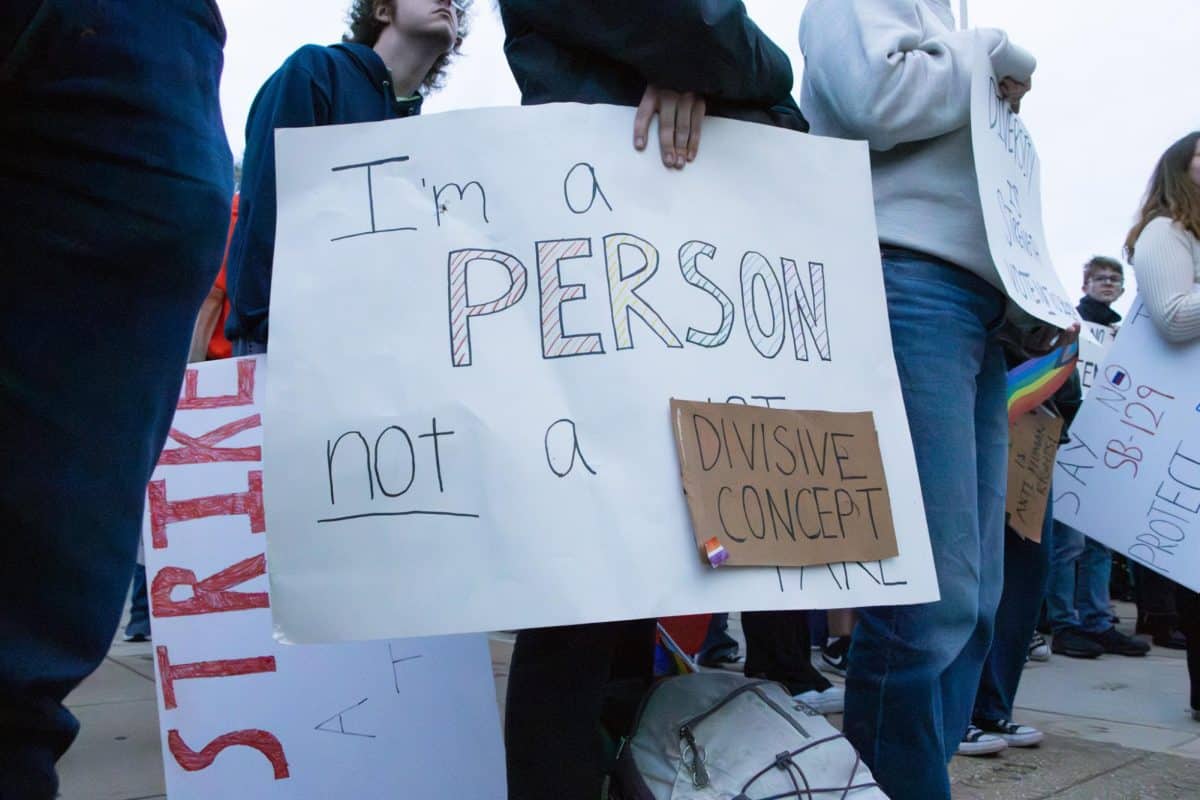Editor’s Note: This developing story was updated Wednesday to include the bill being signed into law.
The Alabama state legislature passed Senate Bill 129 on Tuesday. Gov. Kay Ivey signed it into law on Wednesday, and it will take effect on Oct. 1.
The bill, which was amended by the state House and then approved by the state Senate on Tuesday, was written “to prohibit certain public entities from maintaining diversity, equity, and inclusion offices and from sponsoring diversity, equity, and inclusion programs,” as well as to prevent the promotion or affirmation of “divisive concepts” in certain educational settings.
DEI programs are defined in the bill as “any program, class, training, seminar, or other event where attendance is based on an individual’s race, sex, gender identity, ethnicity, national origin, or sexual orientation, or that otherwise violates this act.”
Many students have expressed uncertainty as to the specific implications of this definition. When asked to clarify the specifics of this section of SB 129, Rep. Ed Oliver, R-Dadeville, one of the bill’s leading proponents in the State House, said that the legislators attempted to make it as clear as possible.
“Simply read the things the bill does not do,” Oliver said.
The office of Sen. Will Barfoot, R-Pike Road, the bill’s author, did not respond to a request for comment on this section of SB 129.
The bill would also require public institutions of higher education to designate restrooms “based on biological sex,” a provision that will prevent transgender students from using the bathroom corresponding to their gender identity.
SB 129 received backlash from students across the state. On Feb. 28, the Queer Student Association, the Hispanic-Latino Association and the Black Faculty and Staff Association Ambassadors held a demonstration against the bill that drew a crowd of nearly 200 students, while other campuses organized similar protests the same day.
On March 6, students from many Alabama universities gathered outside the Montgomery State House to protest the bill, and some students attempted to talk to Alabama senators inside the building.
Although some conservative student groups, like UA College Republicans, have expressed support for SB 129, many faculty members have questioned whether or not the bill solves a real problem on university campuses. Supporters of the bill and Republican lawmakers have not cited specific examples of students being required to affirm divisive concepts at The University of Alabama.
The University of Alabama system sent out an email to students on Tuesday, outlining its approach and response to the bill in the coming months. The statement was signed by Finis St. John, chancellor of the University of Alabama System; Stuart Bell, president of the University of Alabama; Charles Karr, president of the University of Alabama in Huntsville; and Ray Watts, president of the University of Alabama at Birmingham.
“The University of Alabama System and each of its institutions are dedicated to our mission of providing exceptional educational, research and patient care experiences to all people, of all backgrounds, in welcoming and supportive environments that foster open thought, academic freedom and free expression,” the statement said. “This priority will remain.”
The email said that over the next few months, the UA System’s administrators and lawyers will assess the language of the bill to ensure that the institution complies with state and federal law.
“It is important to note that SB 129 defines divisive concepts and DEI programs in specific terms, and it offers several exceptions for accreditation requirements, academic freedom, medical and mental health care, research, recruiting and outreach, and a host of other areas,” the statement said.
The email also emphasized that the UA System believes differences strengthen its campuses.
“We remain committed to recruiting and retaining outstanding students, faculty and staff from all backgrounds, providing open and equal access to resources and opportunities, and equipping all campus community members for success at our universities and beyond,” the email concluded.















